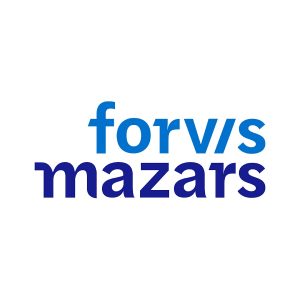Learn How Your Organization Can Help Protect Against the Risk of Internal Fraud
The Association of Certified Fraud Examiners’ (ACFE) 2024 Report to the Nations1 highlights the trends observed in occupational fraud, which includes asset misappropriation, financial statement fraud and corruption. According to the report, the most common scheme is asset misappropriation, defined as “a scheme in which an employee steals or misuses the employing organization’s resources.”1 According to the study, Certified Fraud Examiners (CFEs) estimate that organizations lose 5% of revenue to fraud each year, with the median loss related to asset misappropriation being $120,000, up 20% from the 2022 Report to the Nations.1,2
CFEs estimate that organizations lose 5% of revenue to fraud each year, with the median loss related to asset misappropriation being $120,000, up 20% from the 2022 Report to the Nations.
The risk of fraud is ever-present and on the rise. What can your organization do to help protect against the risk of internal fraud?
Increase the Likelihood of Identifying Fraud and Reducing the Fraud Scheme’s Duration
Even with sophisticated preventive controls, fraud can still occur with the typical scheme lasting 12 months before detection.1 A key strategy to help manage fraud risk is to enact measures to increase the likelihood of early detection, effectively limiting the duration of the scheme. In the study, frauds lasting greater than five years resulted in a median loss of $875,000 and frauds lasting six months or less resulted in a median loss of $30,000.
In the following, we outline what organizations can do now to prevent and detect asset misappropriation:
- Proactive Data Monitoring
Limiting the fraud’s duration and loss may be accomplished through proactive surveillance or data monitoring. In fact, of all the detection methods analyzed in the ACFE’s research, proactive surveillance and data monitoring detected frauds fastest, with a median duration of six months. While data analytics is an effective tool to reduce fraud risk, only 53% of organizations in this study with more than 100 employees have a proactive data analytics program in place. Additionally, only 19% of organizations in this study with less than 100 employees have a program.1Of all the detection methods analyzed in the ACFE’s research, proactive surveillance and data monitoring detected frauds fastest, with a median duration of six months.
Payment Risk Analytics is the culmination of decades of experience performing data analytics to identify potential red flags of fraud in accounts payable, purchasing card and payroll data. Check and payment tampering pose the highest dollar risk for asset misappropriation schemes.1 Utilizing Payment Risk Analytics can be an effective way to help manage the risk of internal asset misappropriation fraud at your organization and provide additional insight into day-to-day operations. - Fraud, Ethics and Compliance Hotline
In addition to applying proactive data analytics, organizations can also more effectively handle fraud risk by setting up a fraud, ethics and compliance hotline. Cases of fraud are most commonly detected through tips, which net three times as many cases as any other detection method. This finding is consistent with prior ACFE studies, which have shown tips to be the most common way fraud is detected.
IntegraReport, the fraud, ethics and compliance hotline from Forvis Mazars, assists our clients by helping to increase the likelihood and speed of detecting incidents of fraud, ethical violations and compliance issues. The ACFE’s research found that organizations with hotlines were nearly twice as likely to detect fraud via tips as organizations without hotlines. This illustrates the crucial roles that hotlines play in addressing fraud risk.
“Occupational Fraud 2024: A Report to the Nations,” Association of Certified Fraud Examiners, Reporting from January 2022 to September 2023.
“Occupational Fraud 2022: A Report to the Nations,” Association of Certified Fraud Examiners, Reporting from January 2020 to September 2021.

Annie is a member of the Analytics team, focusing on product development and automation. Annie’s experience includes developing new products and helping to streamline and automate existing products. She performs analytics to help identify fraud, waste and abuse in payment data that can help highlight opportunities for internal control improvements. To learn more, contact Annie Laudick Cortez at annie.laudick@us.forvismazars.com.

Macie is a member of Forvis Mazars’ Forensics & Valuation practice unit. She is an experienced senior consultant with a demonstrated history of working in the accounting industry. Macie runs the day-to-day operations of the IntegraReport hotline, where she provides dynamic training and Unmatched Client Experiences.® To learn more, contact Macie Latham at macie.latham@us.forvismazars.com.









